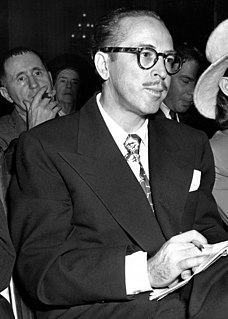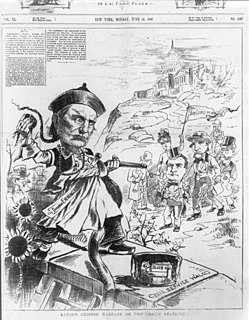A Quote by James Madison
I regret, as much as any member, the unavoidable weight and duration of the burdens to be imposed; having never been a proselyte to the doctrine, that public debts are public benefits. I consider them, on the contrary, as evils which ought to be removed as fast as honor and justice will permit.
Related Quotes
The interest of [businessmen] is always in some respects different from, and even opposite to, that of the public ... The proposal of any new law or regulation of commerce which comes from this order ... ought never to be adopted, till after having been long and carefully examined ... with the most suspicious attention. It comes from an order of men ... who have generally an interest to deceive and even oppress the public.
It is contrary to the principles of reason and justice that any should be compelled to contribute to the maintenance of a church with which their consciences will not permit them to join, and from which they can derive no benefit; for remedy whereof, and that equal liberty as well religious as civil, may be universally extended to all the good people of this commonwealth.
We are neither obstinately nor wilfully to oppose evils, nor truckle under them for want of courage, but that we are naturally to give way to them, according to their condition and our own, we ought to grant free passage to diseases; and I find they stay less with me who let them alone. And I have lost those which are reputed the most tenacious and obstinate of their own defervescence, without any help or art, and contrary to their rules. Let us a little permit nature to take her own way; she better understands her own affairs than we.
Let us hold fast the great truth, that communities are responsible, as well as individuals; that no government is respectable which is not just. Without unspotted purity of public faith, without sacred public principle, fidelity, and honor, no machinery of laws, can give dignity to political society.
That elections of members to serve as representatives of the people, in assembly, ought to be free; and that all men, having sufficient evidence of permanent common interest with, and attachment to, the community, have the right of suffrage, and cannot be taxed or deprived of their property for public uses, without their own consent, or that of their representives so elected, nor bound by any law to which they have not, in like manner, assembled, for the public good.
I have never conceived that having been in public life required me to belie my sentiments, or to conceal them. Opinion and the just maintenance of it shall never be a crime in my view, nor bring injury on the individual. I never will by any word or act, bow to the shrine of intolerance. I never had an opinion in politics or religion which I was afraid to own; a reserve on these subjects might have procured me more esteem from some people, but less from myself.
I feel like if you know any women who's an essayist or a writer or a public speaker or just a public person, and they have any presence at all in any kind of social media, or any place where men can voice at them, you have to be pretty amazed at the level of special provocation and sort of violent speech and misogyny that comes at them. Any woman that's really in the public sphere has experienced this. It's kind of shocking how universal it is.
I think the problem is, if we foreclose any public justice, then we cut off the virtuous cycle that's represented by law, where there are public decisions which then deter misconduct in the future. We need to have both. We need to have private dispute sy-, systems, and we need to have public dispute systems.































